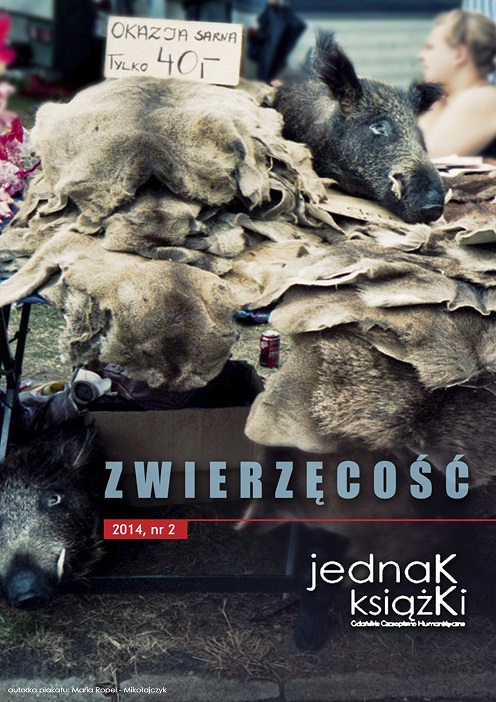Na uczcie mięsożerców. O transhumanicznym potencjale relacji człowieka i ptaka
Abstrakt
The main topic of this essay, Mediterranean traditions of falconry (highly valued both by the Christians and the Muslims), becomes a key to reconsider the awkward problem of man as a meat-eater, problem that opens – according to Agamben's suggestion – a double perspective of pre-humanity and post-humanity. The predatory nature of man brings him close to other predatory species, such as falcons and hawks. On the other hand, eating meat becomes object of manifold restrictions inside the boundaries of the cultured condition of man. While the religious orthodoxies establish qualitative and temporal limitations of meat consumption (such as categories of kosher, halal, etc. and the required periods of fasting), the mystics seek the companionship of a falcon, possibly not only as a paradigm of ascension towards the heavens, but also of unstoppable, uncontrolled voracity that may lead beyond the cultured boundaries and guide the man longing for transcendence. Falcon, that can be tamed, but not completely domesticated, remains a creature at the frontier between culture and nature, transcending both zones. At the same time it may become a spiritual companion leading the man in his quest for the divine. This is why the relationship between man and bird may hide a trans-humanistic potential that still remains unexplored.

 Uniwersyteckie Czasopisma Naukowe
Uniwersyteckie Czasopisma Naukowe




